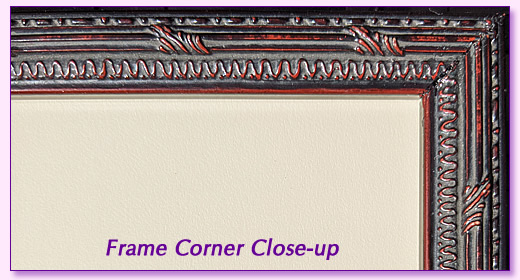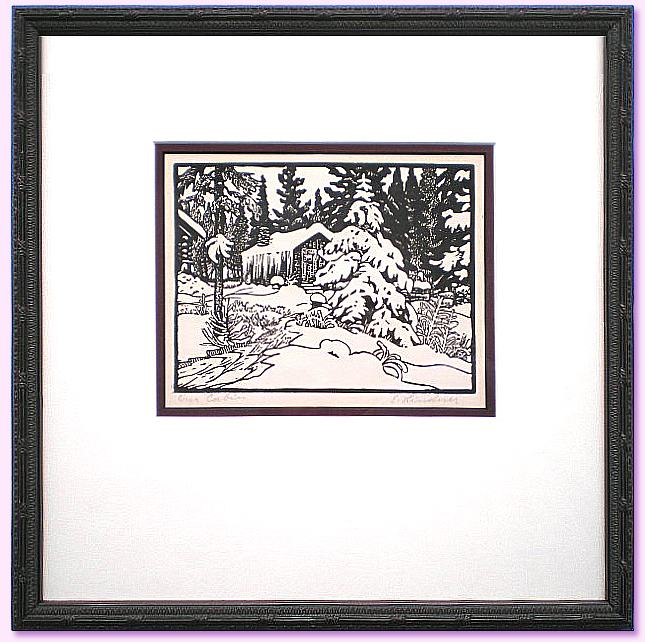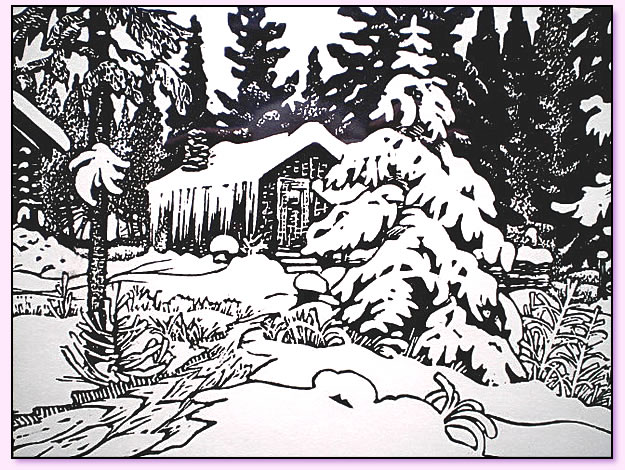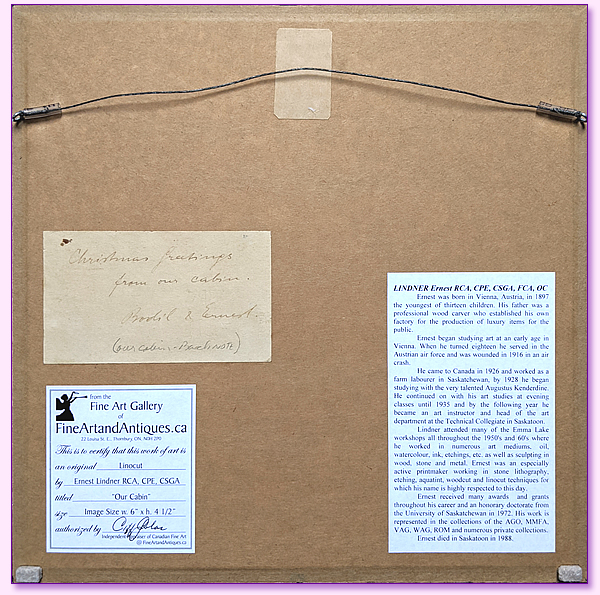
Listed Canadian Artist: (1897-1988)
Linocut Block Print: Fine clear impression in bold black ink
Signed & Titled: Signed by the artist in pencil and titled “Our Cabin”
Sight size: w: 6" by h: 4 1/2", On cream wove paper with full margins
Print Condition: Pristine with no issues whatsoever
Recently Framed & Matted: with archival, rag content and acid-free materials.
Ernest Friedrich Lindner RCA, CPE, FCA
A Note of Interest: This is a fine clear impression with no condition issues, printed on cream wove paper with full margins. This linocut edition was on occasion also titled by Ernest as "End of the Trail". Though this print is not numbered, Canadian artist Ernest Lindner R.C.A. typically printed editions of his woodcuts in small quantities, often limiting them to between 10 and 50 copies. He felt this practice helped maintain the exclusivity and value of each piece.

![]()
 Ernest was born in Vienna, Austria, in 1897 the youngest of thirteen children. His father was a professional wood carver who established his own factory for the production of luxury items for the public.
Ernest was born in Vienna, Austria, in 1897 the youngest of thirteen children. His father was a professional wood carver who established his own factory for the production of luxury items for the public.
Ernest began studying art at an early age in Vienna. When he turned eighteen he served in the Austrian air force and was wounded in 1916 in an air crash.
He came to Canada in 1926 and worked as a farm labourer in Saskatchewan, by 1928 he began studying with the very talented Augustus Kenderdine. He continued on with his art studies at evening classes until 1935 and by the following year he became an art instructor and head of the art department at the Technical Collegiate in Saskatoon.
Lindner attended many of the Emma Lake workshops all throughout the 1950's and 60's where he worked in numerous art mediums, oil, watercolour, ink, etchings, etc. as well as sculpting in wood, stone and metal. Ernest was an especially active printmaker working in stone lithography, etching, aquatint, woodcut and linocut techniques for which his name is highly respected to this day.
Ernest received many awards and grants throughout his career and an honorary doctorate from the University of Saskatchewan in 1972. His work is represented in the collections of the AGO, MMFA, VAG, WAG, ROM and numerous private collections.
Ernest died in Saskatoon in 1988.
Ernest Friedrich Lindner RCA, Canadian Artist
Updated January 17, 2025 |
|
|---|








